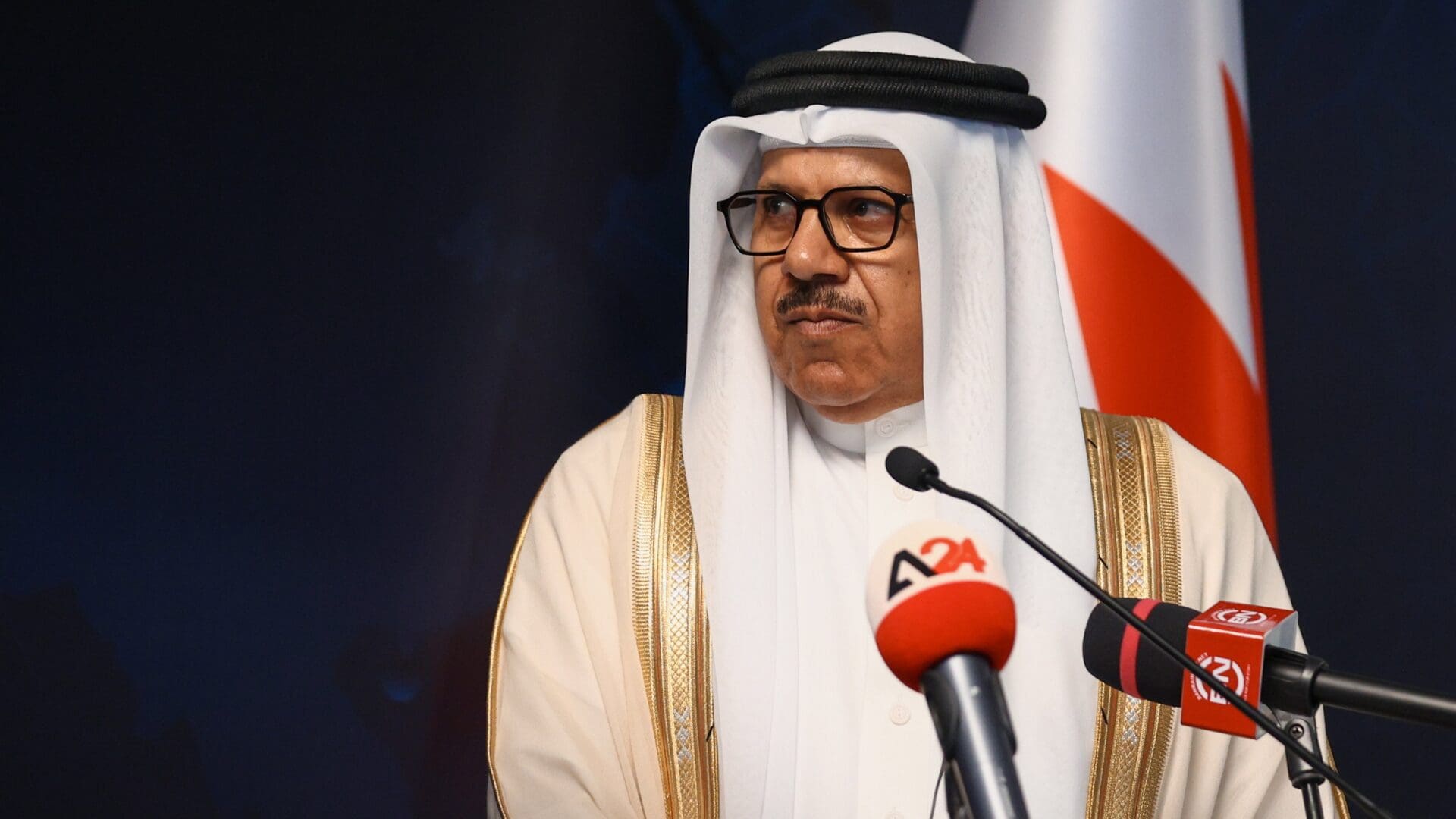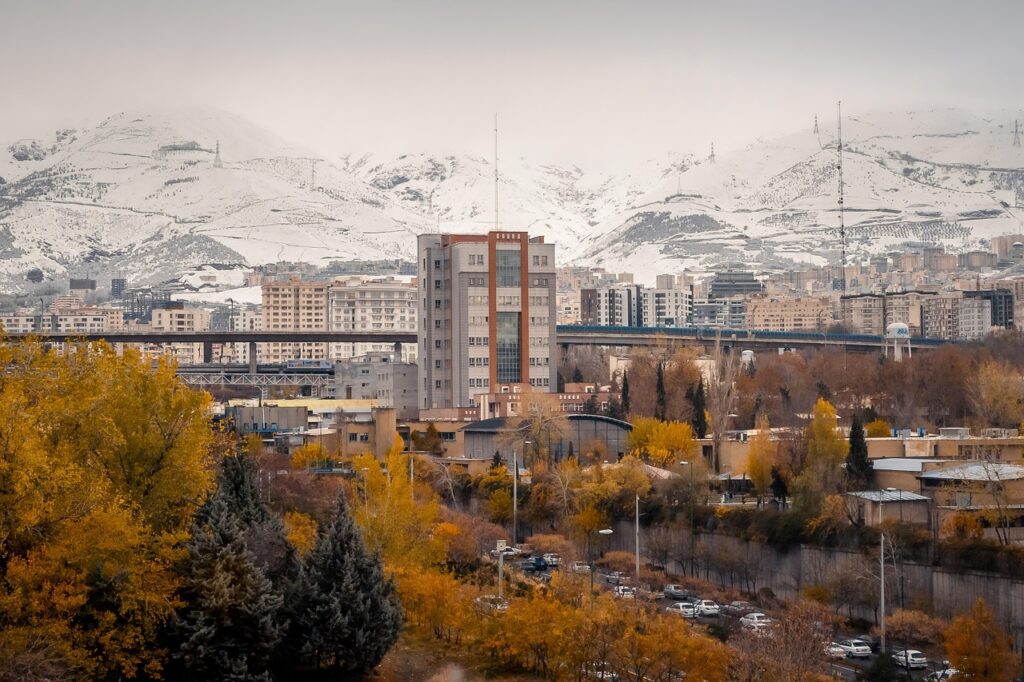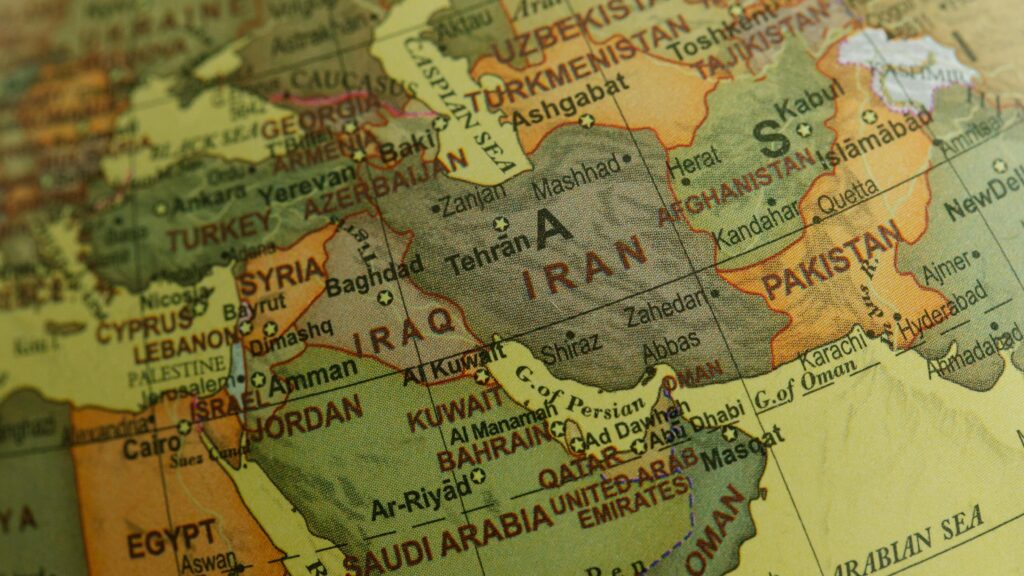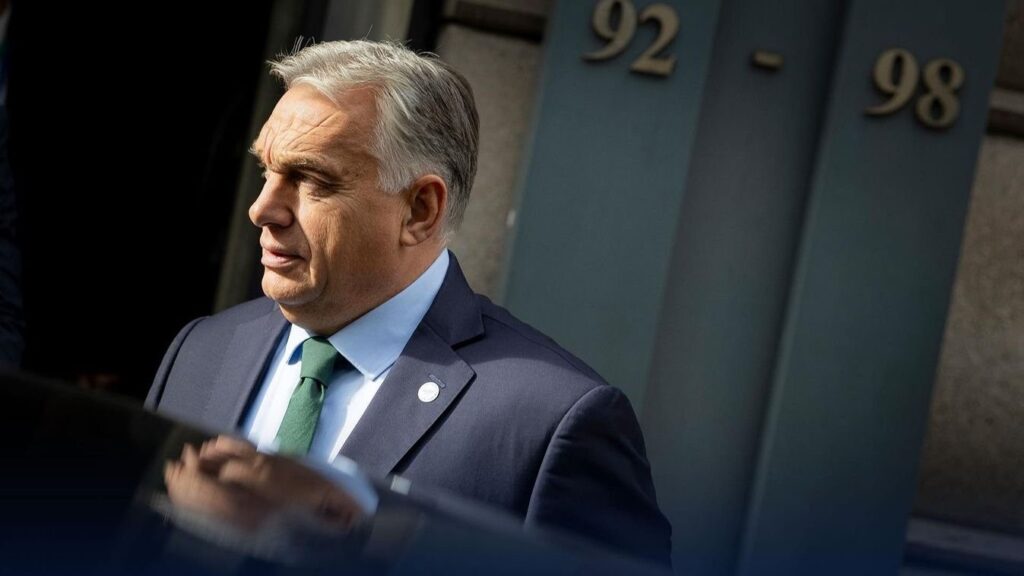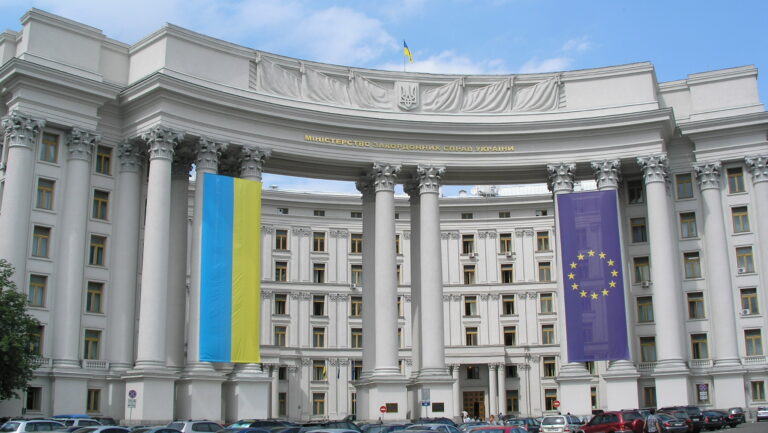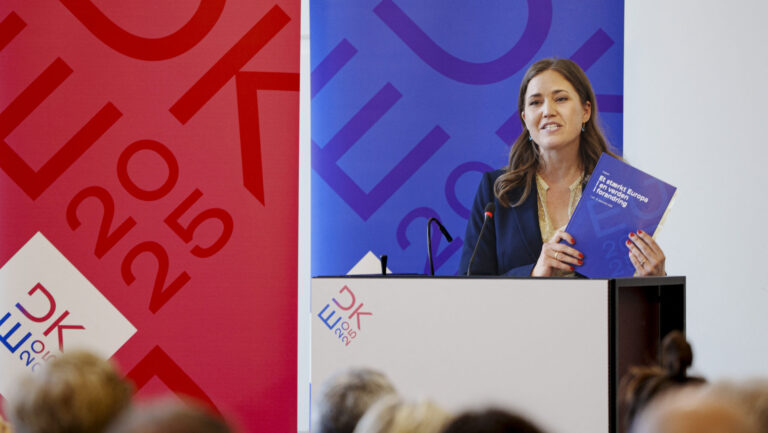‘We must address the root causes of terrorism and extremism. There is a need for interfaith approaches to the problem and there must be a desire on the part of the world community to address the underlying issues of war and terrorism,’ the Bahraini Foreign Minister stressed at a background discussion in Budapest.
Bahraini Foreign Minister Abdullatif bin Rashid Al Zayani visited Budapest at the invitation of the Hungarian Diplomatic Academy. He spoke about the crises in the Middle East and the challenges facing the region to Arab ambassadors accredited to Budapest, representatives of the Ministry of Foreign Affairs and representatives of several think tanks, including the Danube Institute.
Hungary and Bahrain have excellent relations on both the bilateral and private sector levels—this is also proven by a private Bahrain–Hungarian Relations website that notes: ‘We are not related to any governmental organization, any political party and we are not supported financially by the Hungarian Government. We are a 100 per cent private organization’.
Foreign Minister Al Zayani represents a remarkably diverse and vibrant island nation off the coast of Saudi Arabia, and he himself has a diverse and varied background. He is an engineer and a Brigadier General who had advanced military education in the United States. He also received a Ph.D. in operations research from the prestigious Naval Postgraduate School in Monterey California.
Bahrain maintains more than amicable relations with regional and global nations and describes its foreign policy as mirroring internal politics, emphasizing human rights, regional and international peace and security, religious tolerance and peaceful coexistence, women’s rights, sustainable development, and environmental protection. All of these are things that almost every country claims, but having spent some time in Bahrain it appears that the Bahraini government takes these ideals seriously. As a microcosmic example, I recall spending a memorable New Year’s Eve on the beach in Bahrain, and speaking to young people, in particular, some from Saudi Arabia and others from the Gulf region, who were in Bahrain for its accessibility and relative freedom—much like Hungary was to Eastern Europeans in the Cold War. Indeed, in a remarkable sight, I thought I would never live to see, having spent so long in the Gulf over the last half century, the beach in Bahrain had European women in bikinis mixing comfortably with women taking in the sea air in full abaya and niqab (facial veil), with all states of un/dress in between. All, including the men present, were comfortable and relaxed, and all seemed glad to be in Bahrain rather than a more restrictive environment.
At the same time, Bahrain is fully a member of the Gulf Cooperation Council (GCC), indeed Foreign Minister Al Zayani was for nine years the Secretary General of the organization, and the harsh realities of the region are never far from the surface. Foreign Minister Al Zayani opened his remarks with an all too true and very ominous warning: that
many in this generation in the Islamic world were born in war and desperation and in need of hope from some quarter.
The results of a generation born of war in places like Afghanistan, Iraq and at some level in Gaza are apparent. When war becomes multi-generational, it becomes impossible to break the cycle and begets instability throughout the region and the wider world. Nonstate actors like the Islamic State (ISIS), Hizballah, and Hamas take full advantage of these conditions, while Iran creates regional and local proxies born of just such desperation. It is up to the world community to help break the cycle. We must, the Foreign Minister stressed, address the root causes of terrorism and extremism. There is a need for interfaith approaches to the problem and there must be a desire on the part of the world community to address the underlying issues of war and terrorism.
Specifically, he stressed that Bahrain wants a comprehensive approach that includes diplomatic engagement, the building of trust, and the engagement of regional organizations such as the Gulf Cooperation Council (GCC), the Organization of Islamic Cooperation, and the Arab League in building trust, peace and security. He noted that Bahrain supports human rights and that the GCC is moving in that direction. In regional terms, there is a need to determine shared values and to build educational and governmental systems to support these values. Further, there is a need to promote economic cooperation, to cooperate to counter terrorism, and to better share intelligence and counter-terrorism capabilities so as to disrupt terrorist networks and counter radical ideology.
All of this is laudable, and Bahrain has much to be proud of in that, to a considerable degree, its policies reflect the ideals embodied in Foreign Minister Al Zayani’s remarks. It is, however, when the talk turned to the intractable Israeli–Palestinian conflict and the Gaza war that the realpolitik of Bahraini policy blends with idealism and hope that would seem to have little foundation in the current reality.
Bahrain, along with the United Arab Emirates, Sudan, and Morocco, was a signatory of the American-sponsored Abraham Accords and thus has had diplomatic relations with Israel since 2020. This is not an easy position to maintain in the Arab world in the wake of the widespread destruction and death in Gaza.
Foreign Minister Al Zayani noted that Bahrain is calling for a cease-fire, the release of all hostages, and the implementation of a two-state solution, i.e., the creation of a Palestinian state. He highlighted that when Israel feels unsafe, ‘bad things happen’. The putative Palestinian state should be ‘viable, stable, sovereign and secure’, he added. And there’s the rub. Much of the world agrees that the Palestinians should have, and deserve, a state of their own. It’s a political ideal whose time should have come long ago. But the experience of Palestinian self-government, even in a limited sense, is not promising. Hamas rules Gaza but does not govern it, leaving the business of government to outside NGOs and to UNWRA. Hamas is at the core a terrorist movement which, unlike the far more sophisticated Hizballah, has no other dimensions beyond terrorism. Hizballah by contrast, has a parliamentary dimension that is quite successful, a conventional military force that is formidable, a social welfare, educational and communications infrastructure that has grown to be more important than the terrorist units which it commands. Hamas has none of this and lacks the capacity to develop any of it.
And the Fatah ruled the Palestinian Authority (PA)? This is a place I know well, having lived and worked there during the time of the first intifada and having visited often enough since. The Palestinian Authority is so riddled with corruption and incompetence that it retains little popular appeal and less political support. When I asked the Foreign Minister about this, he said that he had congratulated President Mahmoud Abbas for the stability and security he had achieved for the Palestinian Authority. Yet as West Bank Palestinians know only too well, the PA is capable of none of this. The Israelis call the tune, and what security exists is the result of IDF and Shin Bet operations—a situation more designed to protect Jewish settlers and the Israeli state than Palestinians.
And the terrorist attack of 7 October? Foreign Minister Al Zayani offers a popular Middle Eastern conspiracy theory in explanation. Is it any coincidence, he asks, that the attack came only days after Saudi ruler Prince Mohammad bin Salman, popularly known as MBS (though Saudis will whisper that the initials stand for Mr. Bone Saw after the tool that dismembered Saudi Journalist Jamal Kashoggi), gave an interview to the American Fox News Network with the view that Saudi Arabia would soon recognize Israel, triggering the attack? In reality, the violence of 7 October had been planned and rehearsed for many months and was launched on the Jewish holiday of Shemini Atzeret (Eighth Day of Assembly) which meant that many Israelis, especially Israel Defense Forces (IDF) reservists, would be off duty or traveling to attend family gatherings elsewhere.
In the end, Bahrain is a stable, progressive, and open nation that is a leading partner in regional organizations, a fast friend to Hungary, and a force for peace and stability in the Middle East that cannot be blamed for having no viable solution to the Palestinian conflict with the Israelis. No one does.
Related articles:

